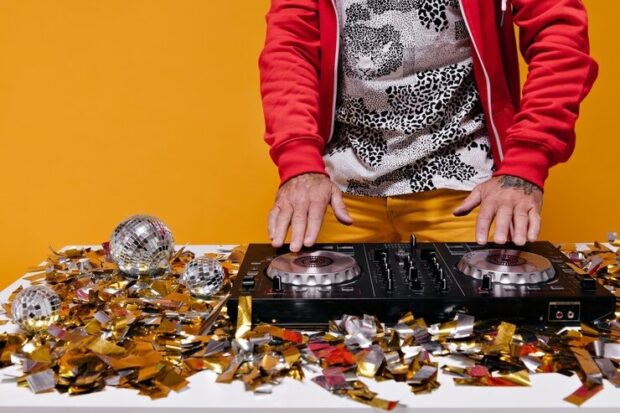Hip-hop music has long been a platform for artists to express their struggles, pain, and emotions through their lyrics. However, mental health is still a topic that is often stigmatized and overlooked within the industry.
Many rappers have spoken about their battles with depression, anxiety, addiction, and other mental health issues in their music. Still, it’s only recently that the industry has started to take steps toward addressing these issues.
In this article, Rostrum Records founder Benjy Grinberg explores the importance of addressing mental health in hip-hop and some ways the industry can start to break down the stigma.
Education And Awareness

Education and awareness are among the most important steps towards addressing mental health in hip-hop. According to Benjy Grinberg, this means creating resources for artists to learn about mental health, how to recognize the signs of mental illness in themselves or others, and how to seek help if needed.
Organizations like MusiCares provide free resources for musicians, including support groups, counseling services, and financial assistance for those struggling with mental health issues.
Destigmatization
Another important step is destigmatizing mental illness within the industry. Many rappers have spoken out about feeling ashamed or embarrassed to talk about their struggles with mental health due to fear of being labeled as weak or crazy. We can break down these harmful stereotypes by openly discussing these issues and promoting messages of acceptance and understanding.
Empathy And Support

It’s also crucial for artists to feel supported by their peers when they speak out about their struggles with mental illness. Creating safe spaces where artists can share their experiences without fear of judgment or backlash can go a long way toward fostering empathy and support within the community.
Therapy
Therapy can be an incredibly helpful and transformative tool for individuals facing mental health challenges, including musicians in the hip-hop industry. It provides a safe space to explore emotions, navigate personal struggles, and develop coping mechanisms to thrive in their personal and professional lives.
Despite the proven benefits, a stigma persists around therapy in many communities, including hip-hop. By promoting therapy and normalizing seeking help, we can encourage artists to prioritize their mental well-being, fostering a culture of self-care in the hip-hop community.
Creative Expression

Many artists use their music as a form of therapy and creative expression. By providing opportunities for artists to create music about their mental health experiences, we can not only destigmatize these issues but also create a sense of community and solidarity among those struggling with similar challenges.
Advocacy
Hip-hop has always been a powerful platform for activism and social justice, providing a voice for marginalized communities. Recently, it has also emerged as a platform for mental health advocacy. Artists use their influence and reach to raise awareness about mental health issues and promote access to resources and support.
By sharing their struggles and experiences, they are breaking down the stigma surrounding mental illness and creating a sense of solidarity among their listeners. These artists use their music and activism to make a significant impact, fostering a compassionate and understanding society that prioritizes and supports mental health.
Long-Term Solutions

While all these steps are important in addressing mental health in hip-hop, working toward long-term solutions prioritizing mental health from the outset is also crucial. This means creating safer working environments for musicians, promoting work-life balance, and prioritizing self-care within the industry.
Conclusion
Benjy Grinberg says the hip-hop industry has come a long way in recent years when it comes to addressing mental health issues within the community. However, much work still needs to be done to break down stigmas and prioritize mental health resources and support for artists.
By taking steps towards education, destigmatization, empathy and support, therapy promotion, creative expression opportunities, advocacy efforts, and long-term solutions, the industry can foster healthier environments for its musicians while simultaneously encouraging open dialogue about mental well-being amongst all individuals involved within this sphere of music entertainment.
It’s time to break the stigma once and for all. Good mental health should never be seen as weak or embarrassing; rather, it should be celebrated as strength.




























